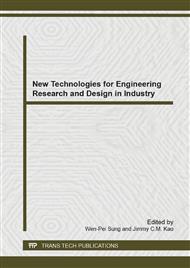p.2358
p.2361
p.2364
p.2368
p.2372
p.2378
p.2382
p.2386
p.2394
Research on Mechanism between Government and Enterprise under BT Turnkey Model: A Cooperative Game Model
Abstract:
According to the basic theories of project management, this paper analyses the condition in a situation that government and enterprise enter into cooperation under non-completely benefit. With cooperation mechanism under non-completely benefit's subject, this paper explains respectively cooperative course mechanism, utility shifts the mechanism and consult the mechanism. We use the game model to analyze cooperative course mechanism, utility shifts the mechanism and consult the mechanism. The game model has explained the interests relation under the condition of cooperating with government and enterprise. Under this kind of state, the cooperation is the win-win to both sides. This cooperation mechanism can solve effectively the problem of risk sharing on the project.
Info:
Periodical:
Pages:
2372-2377
Citation:
Online since:
June 2014
Authors:
Price:
Сopyright:
© 2014 Trans Tech Publications Ltd. All Rights Reserved
Share:
Citation:


